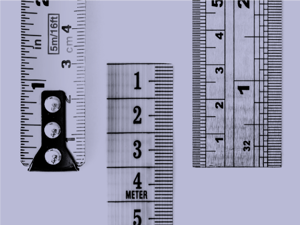Social media is widely used by researchers. It can support many academic and scientific activities:
- Soliciting participants
- Gathering feedback
- Making new contacts
- Facilitating meet-ups during conferences
- Q&A, especially in ready-made groups
- Publicising / learning about past, present and future studies.
If you are using social media, either personally, as a group, or for a specific project, here are some tips to help you get the most out of it. Don't forget that Kudos can help you manage social media and other research communications – get started for free.
 Fill in your profile
Fill in your profile
If you are using social media to help build your reputation, make sure your profile is clear about your name, role, institution and interests. You can include links in your bio (such as to your Stories on Kudos, see above) to help people learn more about you.
Add a post
If you have only just joined, post an initial message so your account looks 'live'. For example, “I’m joining [platform] to find and chat with others who are interested in [topic]” or “Greetings! I’ll be posting here about [topic] – please follow me if you’re also interested in that, and let me know if you have suggestions for people or hashtags to follow!"
A quick way to make it clear your account is active is to reshare posts from other people.
Follow some people
There is no point posting if there's no-one reading. Building up a network doesn't have to be time-consuming. Usually, once you ave started the ball rolling your network will continue to grow organically.
Get started by following people and hashtags:
- People you know in real life (though to be clear, you don't have to know people in real life to be 'allowed' to connect with them on social media)
- Conferences / meetings or journals in your field
- Your university / employer, funder, professional institute / association etc
- Publishers and providers (such as Kudos – follow us on Twitter, LinkedIn and Facebook)
- People already following those above – look through their follower lists to find other people or organizations you know or are interested in.
Get followers in return
Most platforms will notify users to let them know you are following them. It is very common for people to immediately follow you back. So, spending 15 minutes following people will lead to you getting some new followers. To make it easy for other people to find and follow you, put links to your social media accounts in:
- Your Kudos profile
- Your email footer
- Your website
- Your business cards
Join in
 The easiest way to get started or keep up a regular flow is to like, reshare and mention other people and posts; ask and respond to questions.
The easiest way to get started or keep up a regular flow is to like, reshare and mention other people and posts; ask and respond to questions.
Posting about your own work is good – try to blend it in with posts on other topics, too. Use hashtags (putting a # sign in front of one or two of the key words in your post) to reach people and communities who are already looking for information on those topics.
It's OK to blend a bit of personal with a bit of professional, but remember the expectations and sensitivities of people in your professional community.
It's a bit more effort, but pictures will bring your research to life and help your posts to get more views. You can post pictures of things like your team or other visitors at your place of work; your poster at a conference or your best slide from your talk; images from your research or the cover of a book or journal you are published in.
Be clear about what you want people to take away from your post. If you want them to DO something, make it clear and easy (“Visit our project webpage” or "Sign up for our workshop").
Repeat, repeat, repeat – your followers will be in different time zones, and will have a constantly moving waterfall of posts. It is normal to repeat posts to make sure you are being picked up by people who check in at different times of day.
Keep track
 If you want to make the most of limited time, it makes sense to keep track of your posts and see how many people interact with them.
If you want to make the most of limited time, it makes sense to keep track of your posts and see how many people interact with them.
If you use trackable links from Kudos in your posts, we will show you how many people click on the links you share. This way you can see, for example, whether LinkedIn or Twitter is doing a better job of bringing viewers to your research.
You can also use Kudos trackable links in other kinds of communication, not just social media – you can put Kudos links on posters, business cards, slides, handouts, emails, and so on. This means you can compare social media with other types of communication on a like for like basis, and make informed decisions about whether social media is a worthwhile channel in your community.
Go to the "Share" sections in your Kudos Stories to generate trackable links.





